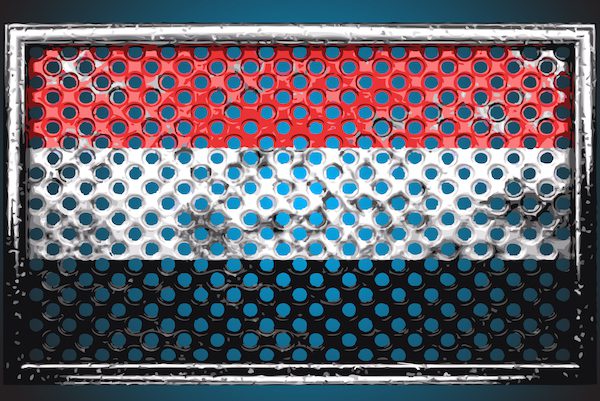The War on Yemen Keeps Getting Worse

The Saudi-led coalition is expanding its ground war in Yemen:
The deployment comes after 45 troops from the United Arab Emirates and 10 Saudi soldiers were killed in Marib on Friday, the worst setback to date for the Saudi-led coalition since it began its offensive in March. Mounting losses will test the will of the Gulf states to extend their involvement after helping the internationally recognized government of President Abdurabuh Mansur Hadi retake parts of southern Yemen.
Expanding the ground war carries a “huge risk of heavy casualties” for the Gulf Arab monarchies, said Ibrahim Fraihat, senior foreign policy fellow at the Brookings Doha Center. “Yemen has historically proved to be a very tough spot for foreign armies to fight and win.”
The Saudi-led ground invasion will further exacerbate the suffering of the civilian population and drive up the death toll on both sides of the conflict. It still seems unrealistic to think that the Saudis will be able to reinstall Hadi, who is now widely loathed in much of country and has no significant base of support, which just underscores how unnecessary and indefensible the campaign has been from the start. Even if the Saudis eventually succeed in driving the Houthis out of the capital, it will have come at the cost of devastating Yemen and destabilizing the country for many years to come, and it will also come at a high cost in coalition military losses. The best thing for Yemen would be if the coalition governments stopped now before laying waste to more of the country, but that doesn’t seem to be what they intend to do.
The U.S. ought to be leaning on the Saudis and their Gulf allies to halt their attack before they suffer more losses, but there is no sign that the administration wants to do this or that it would be able to change their behavior at this late stage. If the U.S. isn’t able to rein in its clients, it will continue to be partly responsible for all the harm this campaign has caused. David Kenner reported last week on the war and the U.S. role in it:
In addition to selling weapons to Riyadh, the United States is providing targeting intelligence and refueling capabilities for the Saudi-led coalition. And some former U.S. officials argue that the very public links with the war effort are reason enough for Washington to do more to shape the campaign.
“In our media, we call it the Saudi air campaign; in the Middle East, it’s called the Saudi-American air campaign,” said Barbara Bodine a former U.S. ambassador to Yemen who is now a professor at Georgetown University. “Can we use our leverage to try to get the Saudis to change their policy? Frankly, I think yes we can. And I think we should at least be seen to be trying.”
Perversely, the fact that the U.S. role in the war is largely unknown and unseen here at home gives the administration little incentive to “be seen to be trying” to pressure Riyadh to change its behavior. The more attention that the U.S. calls to the war by trying to stop it would make the public more aware of the disastrous war that the administration has been facilitating for more than five months. It appears that Obama is content to continue enabling the wrecking of Yemen while his officials issue meaningless expressions of “concern” over the harm done to Yemen’s civilians.
Comments